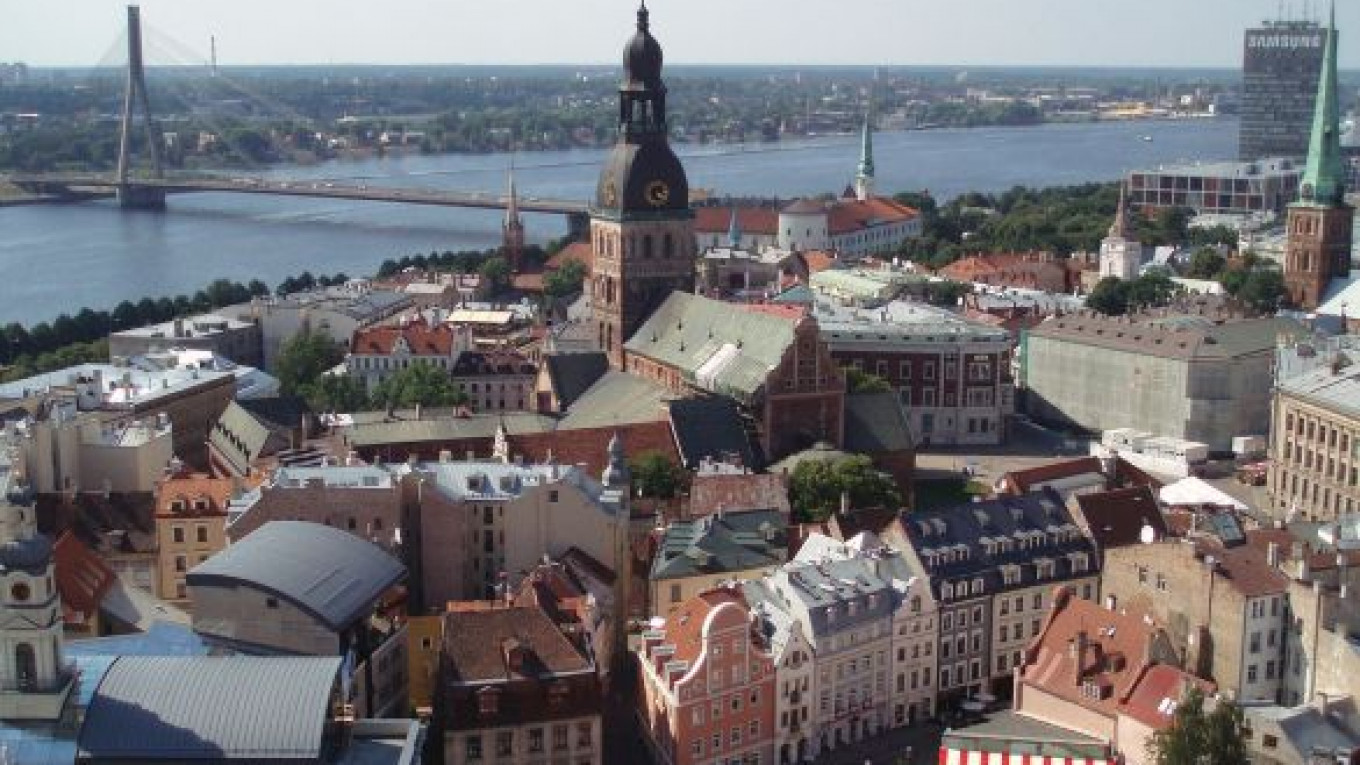The eurozone's next entrant, Latvia, will push for tight budgets, labor reforms and free trade deals when it joins the bloc next year, Prime Minister Valdis Dombrovskis said.
Latvia's euro entry in January cements its shift away from Russia, two decades after the collapse of the Soviet Union. Dombrovskis said in an interview that he feared Moscow was trying to flex military and trade muscles in the Baltic.
Latvia is joining the bloc proud of the strong economic growth and relatively low debt levels it has achieved after undergoing a deep recession during the global credit crisis when it slashed spending to keep its currency pegged to the euro.
Its Baltic neighbor and euro member Estonia has been a vocal critic of bailouts of euro economies such as Greece and has often sided with a northern bloc including Germany and Finland that has insisted on tough bailout terms.
"The main point is that quite a few measures already have been taken by the eurozone to strengthen both fiscal discipline and economic governance," Dombrovskis said last month.
"Now it is important that those initiatives are followed through and fiscal discipline is actually ensured. I believe Latvia will be the voice in favor of actually following all the rules," he added.
Latvia's emergence from its 2008-09 crisis is what the European Union hopes to see in southern European countries now wrestling with recession and debt. At 40 percent of economic output in 2012, Latvia's debt was less than half the eurozone average.
Latvia will use euro notes and coins from Jan. 1, 2014, hoping entry to the currency bloc of 330 million people will help trade and attract investment. Fellow Baltic nation Estonia joined in 2011, and Lithuania is expected to follow in 2015.
"Competitiveness is probably the key issue the core EU needs to deal with, including full utilization of the EU internal markets," Dombrovskis said, adding a number of countries needed to make their labour markets more efficient.
"Fiscal discipline is important. But unless you deal with competitiveness factors you will not be able to ensure sustainable growth."
He said Latvia would push the EU to cut red tape and make free trade deals with the U.S. and Japan but would not say whether Latvia would support further moves towards a banking union, which has hit a stumbling block over how to pay for closing or salvaging failed banks.
Russian Relations
Russia suspended imports of dairy products from neighboring Lithuania this month, weeks before the small Baltic state hosts an EU summit. Russia and Belarus also held one of their largest military exercises in recent years near Latvia's border last month.
"Certainly we are following [events] with concern," Dombrovskis said.
"As regards relations between Russia and the Baltic states, if you look at the last 20 years or more you actually see relations have been quite bumpy."
Of the 15 former republics that became independent states when the Soviet Union disintegrated in 1991, only Lithuania, Latvia and Estonia have joined the EU.
"Certainly there are added concerns that we see increased intensity and scale of Russian military maneuvers on our borders," Dombrovskis said.
"Russia tends to become more assertive with its neighbors. We see it in Ukraine … we see it in certain actions to Baltic states," he added.
A Latvian state commission to calculate the damage wrought on the former communist republic by the Soviet occupation has had its funding renewed by the Latvian government, Interfax reported Tuesday.
The commission has been inactive since August 2009, when the government sacrificed its financing as part of an effort to cut budget spending by 500 million lats ($958 million) in the aftermath of the 2008 financial crisis.
Latvia was occupied by the Soviet Union in 1940, a year after the Molotov-Ribbentrop pact divided up northeastern Europe between the Soviets and the Nazis. The country regained its independence in 1991, and in the following two decades has oriented itself westwards, joining both the European Union and NATO.
A Message from The Moscow Times:
Dear readers,
We are facing unprecedented challenges. Russia's Prosecutor General's Office has designated The Moscow Times as an "undesirable" organization, criminalizing our work and putting our staff at risk of prosecution. This follows our earlier unjust labeling as a "foreign agent."
These actions are direct attempts to silence independent journalism in Russia. The authorities claim our work "discredits the decisions of the Russian leadership." We see things differently: we strive to provide accurate, unbiased reporting on Russia.
We, the journalists of The Moscow Times, refuse to be silenced. But to continue our work, we need your help.
Your support, no matter how small, makes a world of difference. If you can, please support us monthly starting from just $2. It's quick to set up, and every contribution makes a significant impact.
By supporting The Moscow Times, you're defending open, independent journalism in the face of repression. Thank you for standing with us.
Remind me later.






